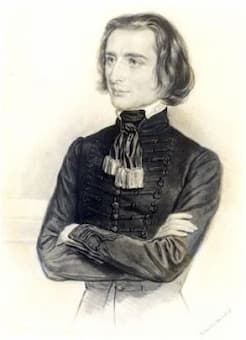
Franz Liszt
Robert Schumann was a progressive critic and editor of the influential music periodical Neue Zeitschrift für Musik, which he had founded in 1834. He populated the pages of his journal with a cast of characters called the “Davidsbündler” (League of David), after the biblical Kind David who played and composed music, wrote poetry, and slew the Philistines. For Schumann, the musical Philistines were composers of banal and empty theatrical and virtuoso compositions, which were then all the rage. Schumann initially maintained a cordial relationship to Franz Liszt, and he publically praised Liszt’s performance skills. However, once “Lisztomania swept through Europe after 1842, Robert and Clara believed that Liszt had become self-deluded, and they became openly hostile towards him. Liszt, on the other hand, was a lifelong supporter of the works of Robert Schumann, and his review of the Schumann piano works was submitted in court at the process against Friedrich Wieck to clarify his position as a renowned composer. In 1836 Schumann dedicated his Fantasie Op. 17 to Liszt, who called it “a noble work, worthy of Beethoven, whose career it is supposed to represent.” Liszt also suggested that it “should have a dreamier character than vigorous German pianists tend to impart.”
Robert Schumann: Fantasie in C Major, Op. 17 (Evgeny Kissin, piano)
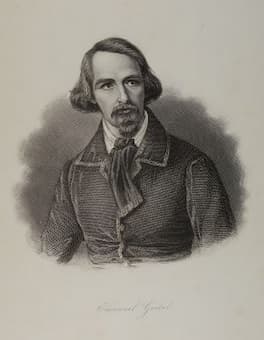
Emanuel Geibel
When Emanuel Geibel (1815-1884) published his first poems in a volume entitled Zeitstimmen (Voices of our Time) in 1841, the literary world immediate took notice. Geibel had studied philology in Berlin, and like his close friends Chamisso and Eichendorff enjoyed an itinerant lifestyle supported mostly by patrons. His poetry had enormous popular appeal, with thousands of musical settings and hundreds of reprints issued by 1884. Predictably, Robert Schumann was instantly captivated by this lyrical collection, as he writes to a friend, “Could I of your kindness borrow the Gedichte of Emmanuel Geibel for a short time. They have just appeared, I believe, from Duncker and Grünblock.” Schumann faithfully transferred some Geibel poems into his personally collection named “Dichtergarten” (A poet’s garden/the composer’s poets). And almost immediately, he stared to set them to music. Schumann favored Geibel’s verses in a number of settings, and he personally met the poet in Dresden in 1846. It is also of interest that Clara Schumann presented her husband with her own compositions of “Three Mixed Choirs” after poems by Geibel on the occasion of Robert’s 38th birthday.
Robert Schumann: Drei Gedichte, Op. 30
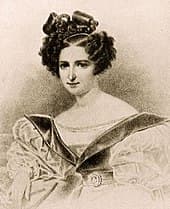
Wilhelmine Schröder-Devrient
Schumann greatly admired the singing of Wilhelmine Schröder-Devrient, an internationally famous opera singer of dramatic vocal character. A contemporary wrote, “her voice is a strong soprano with an inherent expressiveness of tone which made it so attractive on the stage.” Schumann himself commented about her singing in a performance accompanied by Felix Mendelssohn, “If we speak last of the climax of the evening, there is good reason for it. In one word, Madame Schröder-Devrient sang…the soul, the poetry remains fresh throughout all ages in the favorites of Heaven, and thus this artist and poetess will ever enchant us as long as her heart and throat contain one single tone.” They met frequently, specifically after Robert and Clara moved to Dresden where Wilhelmine performed at the court theatre. And in fact, Schumann admired her to such an extent that he changed the dedication of his most popular song cycle Dichterliebe from Felix Mendelssohn to Schröder-Devrient.
Robert Schumann: Dichterliebe, Op. 48 (excerpts) (Cornelia Horak, soprano; Stefan Gottfried, piano)
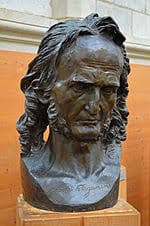
Nicolò Paganini
Like many composers of the time, Robert Schumann was utterly fascinated by the violin virtuoso Nicolò Paganini. Together with his friend Töpken, Schumann travelled to Frankfurt to hear the famed violinist in concert in April 1830. Schumann excitedly wrote, “How he cast his magnetic chains into the listeners lightly and invisibly so that the latter swayed from one side to the other!” Paganini soon became a member of the “League of David” against the Philistines, and Schumann worked even more diligently on his technical piano studies. In addition, Paganini immediately appears in a set of six piano studies published as Op. 1. Schumann returned to Paganini in his Concert Studies of 1833 by transforming the violin Caprices into stunningly virtuoso pieces for the piano.
Robert Schumann: 6 Etudes de concert d’apres des caprice de Paganini, Op. 10 (Florian Uhlig, piano)
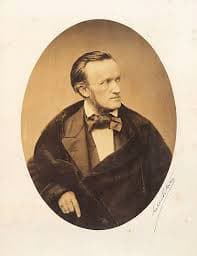
Richard Wagner
Robert Schumann and Richard Wagner both hailed from Saxony, and both lived in Leipzig. Although they were essentially the same age, they did not become the best of friends. They seemingly first met in 1835 during a performance of Wagner’s “Columbus Overture,” and Wagner occasionally sent his contributions to the Neue Zeitschrift für Musik. But the relationship really never got off the ground as Schumann repeatedly ignored Wagner’s invitations to attend his opera performances. When the Schumann’s moved to Dresden, Wagner was already engaged as a bandmaster in the city until the 1848 Revolution. Schumann wrote a one-sentence review of a performance of Fidelio in 1848, “Bad performance; incomprehensible tempi taken by the conductor, Richard Wagner.” And he mercilessly attacked Wagner’s compositions on the grounds that they were simply bad music, calling them “paltry, downright amateurish, formless, and repellent.” In return, Wagner considered Schumann a “strange man who had no sense of melody, and his opera Genoveva showed errors in conceptual design.” Schumann and Wagner represented opposing poles in the discussion between classical and modern music, categories that still persist to the present day.
Robert Schumann: Carnaval, Op. 9
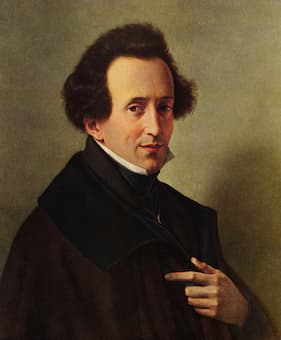
Felix Mendelssohn
They were born one year and 300 miles apart, and Robert Schumann and Felix Mendelssohn first met in Leipzig on 31 August 1835. Schumann had come to Leipzig to study law, but eventually he turned his attention towards music. At that time, Mendelssohn was already director at the Gewandthaus and Schumann “told him, that I knew all his compositions well; he responded with something quite modest. The first impression was of an unforgettable man.” Schumann and Mendelssohn shared a close professional and personal friendship, with Mendelssohn conducting Schumann’s music and hiring him at the conservatory as instructor of composition, score reading and piano in March 1843. The two friends played chamber music for entertainment, shared a common bond with regard to questions surrounding music and philosophy in the highly experimental years after Beethoven’s death, and enthused in playing chess and billiards. Schumann described Mendelssohn as “the first contemporary musician,” and he was devastated when Mendelssohn died from a series of strokes on 4 November 1847. Schumann would pass away nine years later and 300 miles apart.
For more of the best in classical music, sign up to our E-Newsletter
Robert Schumann: Album für die Jugend, Op. 68, II “Erinnerung an Mendelssohn” (Rico Gulda, piano)

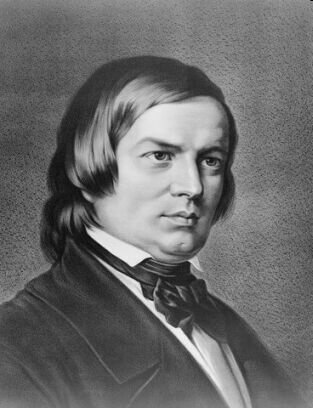
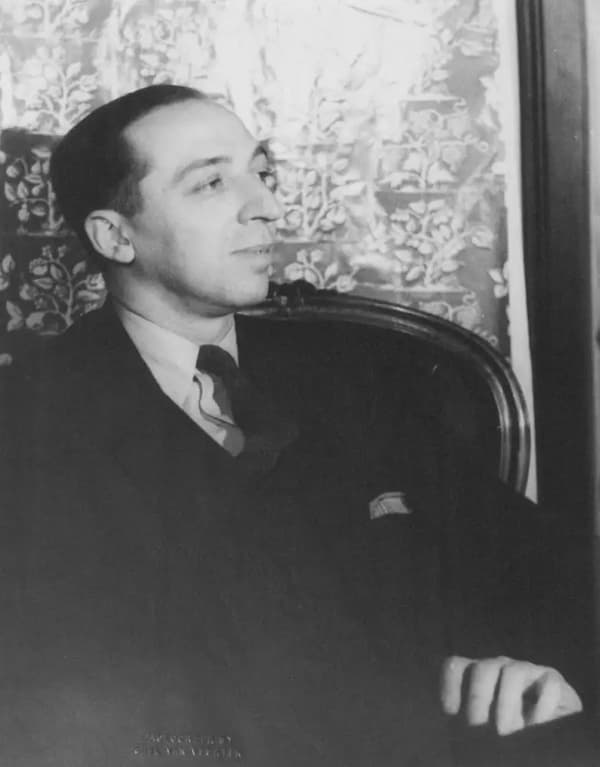
I think Kirchner definitely should be mentioned in that list!